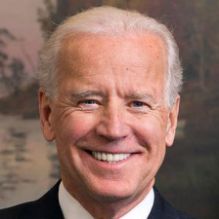By Tribune Staff
BRENTWOOD, TN — The national conversation surrounding the private prison system has been at the fore of many social justice narratives, but executives of the nation’s biggest private prison contractor, CoreCivic, are hoping the incoming Biden administration will find the institution necessary or be too busy to put the industry at the top of its priority list, Nashville Post’s Matt Blois reported.
“When you think of all the other initiatives that are on his plate — health care, tax reform, climate change, trade negotiations. It’s probably a while before you would expect the focus to come on private prisons,” CoreCivic CFO David Garfinkle was quoted in the Post’s report. “It’s such a complex area to solve because we provide such an essential governmental service there, that I can’t believe that would be one they would want to tackle out of the box.”
CoreCivic has been highly criticized for its role in the detainment of immigrants from the southern border. With the 45th administration’s decision to separate and detain immigrant families the calls for private prison abolition have only increased.
During the fiscal year of 2016 over 128,000 people were being held in private prisons, the Sentencing Project reported.
President-Elect Joe Biden made headlines during his campaign with a promise to end the government’s use of for-profit prisons. His win caused investors to flee from the company, with stocks falling 20 percent over a few days after the vote count, the Post noted. Last year, California passed legislation that would gradually end the state’s use of private prisons.
Executives of CoreCivic claim that the service they provide is necessary, alleging the federal government doesn’t have enough facilities at their disposal.
ICE, the U.S. Marshals Service and the Bureau of Prisons all use CoreCivic to detain individuals, though the BOP under then-Deputy Attorney General Sally Yates slowly began withdrawing its use of private prisons, citing a study that found government-run prison institutions operate more efficiently than those in the private sector.
The Post cited an investor presentation that said “ICE uses private prisons for 95 percent of its detainee capacity and the Marshals Service outsources about 80 percent of its capacity.” In the second fiscal quarter of 2019, Blois wrote, those agencies made up 46 percent of CoreCivic’s revenue.
Conversations around racialized mass incarceration gained steam with author Michelle Alexander’s “The New Jim Crow: Mass Incarceration in the Age of Colorblindness” and filmmaker Ava DuVernay’s “13th,” which posits the 13th Amendment to the Constitution is a loophole for modern-day slave labor.
In an August 2016 Time article, civil rights attorney and professor of law and government at Cornell University Joseph Margulies wrote that framing the argument through an economic lens– that private prisons cut corners and put workers and inmates at risk while generating a product that doesn’t live up to its promise of savings– is prone to mixed evidence. Rather than wading through the mire of a cost/benefit analysis, he explains, it’s important people recognize the inherent conflict between justice and profit.
While CoreCivic executives point to a stable relationship between the Obama/Biden administration and the industry in the past, Margulies noted a gradual phase toward non-carceral alternatives to crime during the same time period. And while the incoming Biden administration has much work to do, the fact remains that not only do current practices of incarceration disrupt disadvantaged communities, they also contribute to higher rates of crime.
And though only time will tell what a Biden administration means for the bottom line of companies like CoreCivic, the states, Margulies argued, are in the best position to end for-profit incarceration that ultimately upholds racism in the criminal justice system.



